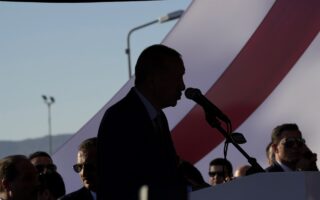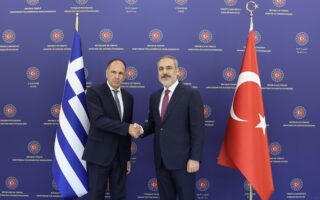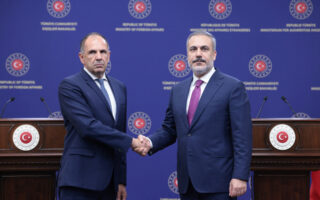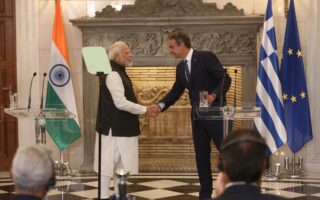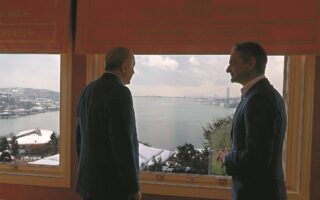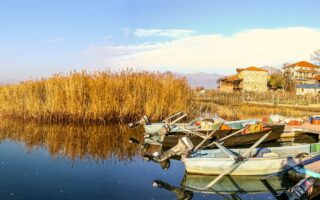Greece’s (very close) ties with Bulgaria
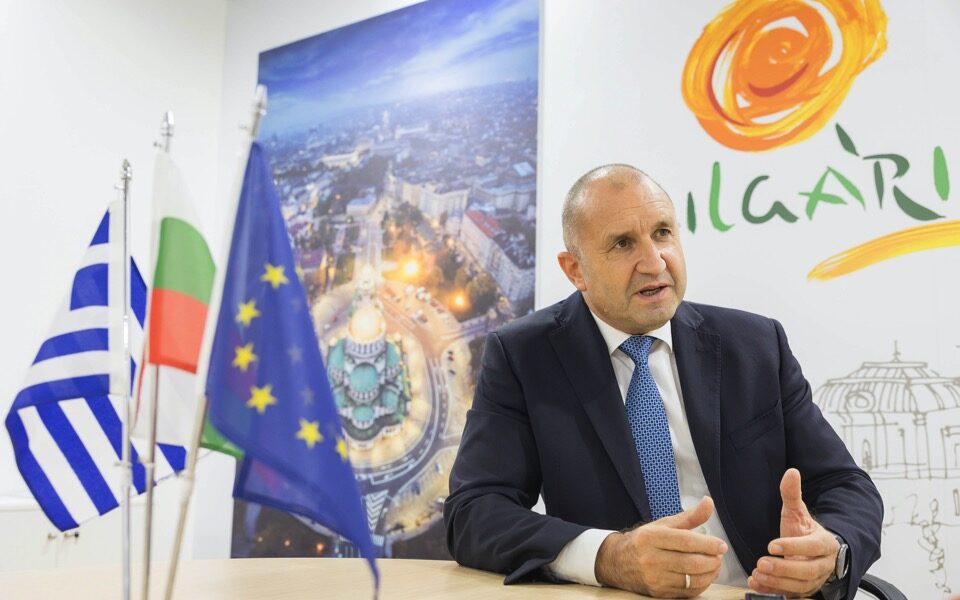
Bulgaria’s nomination as country of honor at this year’s Thessaloniki International Fair – the country’s biggest trade fair, held annually in the northern port city – may come as a surprise at first. This is an honor that is usually reserved for countries with a powerful economy and significant investment interest in the host country, such as previous honorees the United States, Russia, China and the United Arab Emirates. Some may have expected that a country like France, Germany or India would have been given the title this year.
Instead, the city of Thessaloniki is festooned with Bulgarian flags. Random? Probably not, because Bulgaria is Greece’s closest neighbor and friend in the geopolitical game that is unfolding in the region.
In an interview this week with the state-run Athens-Macedonian News Agency (AMNA), while attending the opening of his country’s pavilion at TIF, Bulgarian President Rumen Radev noted that “Bulgaria and Greece form a strategic axis of stability which provides stability and perspectives for sustainable development and growth for the entire region.”
He was not being diplomatic with this complement toward a good neighbor who honored his country at its most important trade fair, but was describing a reality that is being shaped: Greece and Bulgaria are indeed evolving into the most reliable pillars of the West in the East Mediterranean and the Black Sea.
With the construction of strategic projects (the IGB liquified natural gas pipeline, highways, connections from Greek ports to the Bulgarian coast) they constitute an energy and transport axis in a rapidly changing region which aspires to contribute to Europe’s efforts to wean itself off Russian gas and the international shipping industry’s efforts not to be beholden to Turkey’s geostrategic exploitation of the Bosporus Strait.
Russian expansionism, as manifested in its invasion of Ukraine, and mounting covetousness for the Black Sea by Russian President Vladimir Putin and his Turkish counterpart, Recep Tayyip Erdogan, are pushing NATO and EU member-state Bulgaria closer to the Aegean and tethering it more strongly to its southern ally, Greece.
As things are developing right now, Greece and Bulgaria need each other. President Radev admitted that his country is very interested – among others – in plans for the development and management of the northern Greek ports of Kavala and Alexandroupoli, and especially in terms of blocked trade routes in the Black Sea as a result of the war in Ukraine.
He also noted that Greece cannot fully unleash its potential in energy, transportation and other fields without Bulgaria, which is why the two countries must remain united.
Beyond bilateral economic ties, therefore, honoring the neighboring country at TIF has even bigger ramifications.
